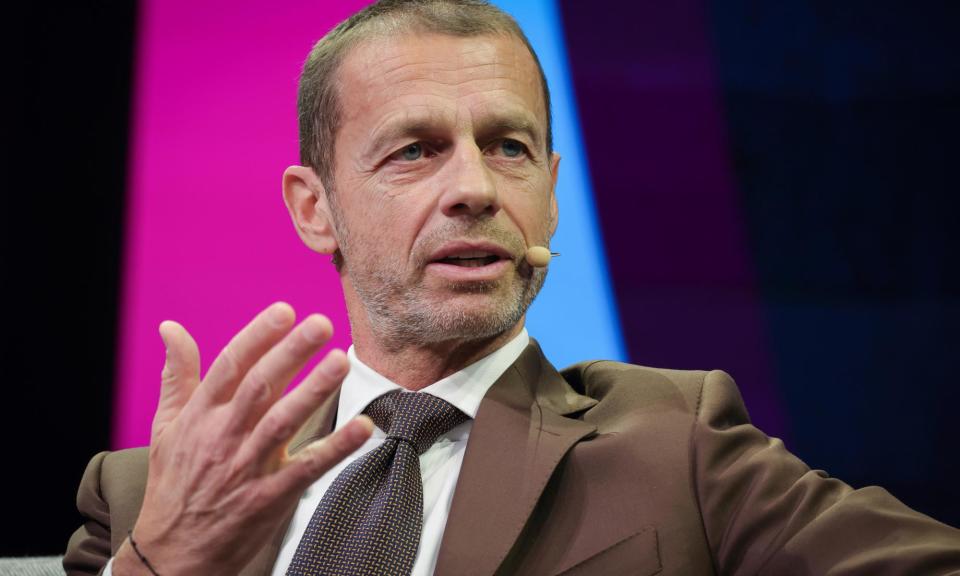English FA set to vote against plans to give Uefa’s Ceferin a fourth term

The Football Association will vote against controversial reforms that would allow the Uefa president, Aleksander Ceferin, to run for an unprecedented fourth term.
In what will be seen as a rare breaking of ranks, England will signal its opposition at the governing body’s annual congress in Paris on Thursday. All of the continent’s 55 member states are to vote on the statute changes and, while they are expected to pass overwhelmingly, the FA intends to make a stand amid widespread disquiet over Ceferin’s plans.
It is possible that the FA will be a lone dissenting voice when votes are cast at Maison de la Mutualité. Few around Uefa anticipate a rebellion totalling more than two or three, with a Ukrainian federation newly headed up by Andriy Shevchenko thought to be considering its options. The Football Association of Wales is understood to have given serious consideration to voting against the alterations but is unlikely to do so. It is possible a handful of countries will abstain.
Related: ‘It was like I became Kim Jong-un’: Aleksander Ceferin on Uefa, Super Leagues and Saudi cash
While there are concerns over the possibility of Ceferin remaining president beyond the existing 12-year term limit and staying in power until 2031, many of those harbouring doubts hold a pragmatic view. There is a sense that, in a climate that has seen the Super League project rear its head again after the European Court of Justice’s high-profile ruling in December, this is not the time for Uefa members to be visibly split. One leading official from an eastern European country, who will cast its vote on Thursday, told the Guardian that a show of unity should be this week’s priority.
Nevertheless the FA will back the stance of David Gill, who is one of its vice-chairmen and sits on Uefa’s executive committee as the body’s treasurer. When Uefa’s exco met in Hamburg two months ago, Gill is believed to have cautioned against the term limit proposal. The FA’s vote is intended to reflect its own principles on sound governance, rather than siding against Ceferin personally. The statute changes are bundled into a package of wider, lower-profile mooted reforms that include increasing the number of women who sit on Uefa’s exco. Had it been possible to vote upon those amendments separately, it is likely the FA would only have opposed the term-limit extension.
Uefa was rocked last month when Zvonimir Boban, its chief of football, dramatically resigned in protest at Ceferin’s plans. In a subsequent interview with the Guardian, Ceferin rejected Boban’s criticism and said the changes were necessary to clarify an invalid provision in Uefa’s existing statutes that could have risked any kind of term limit being null and void. The Croatian FA is understood not to have followed Boban, one of the country’s most decorated footballers, and will join the ranks voting in favour of the plans.

